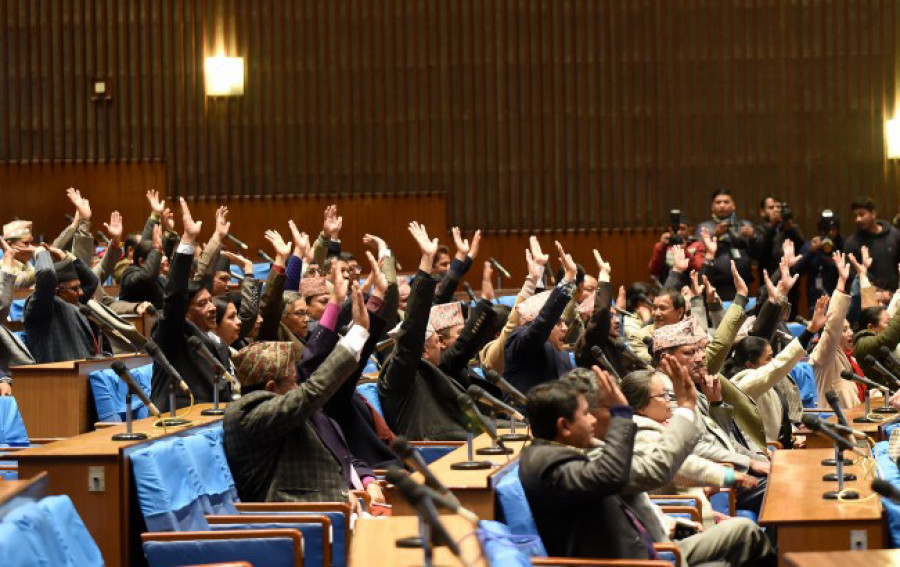Editorial
Get thee to work
Lawmakers should understand that their primary role is making laws.
When Prime Minister KP Sharma Oli in a drastic move decided to dissolve the House of Representatives on December 20, a faction of his own party, then the Nepal Communist Party, led by Pushpa Kamal Dahal and Madhav Kumar Nepal; the Nepali Congress; and the Janata Samajbadi Party reacted fiercely. All accused Oli of making an unconstitutional move, attacking democracy and attempting to subvert the system and political gains. All these parties opposing Oli’s decision took to the streets and held demonstrations demanding the reinstatement of the House.
Civil society leaders, constitutional experts and even former Supreme Court justices were of the view that Oli had breached constitutional provisions in dissolving the House. A little over two months later, the Constitutional Bench of the Supreme Court on February 23 decided to overturn Oli’s move, calling it unconstitutional. It also ordered a meeting of the House within 13 days.
President Bidya Devi Bhandari then summoned the House session for March 7 as per the government’s recommendation. But hours before the House meeting, the Supreme Court on March 7 passed yet another verdict, taking everyone by surprise. The court not only scrapped the Nepal Communist Party altogether, deciding on an almost-three-year-old case but also revived the CPN-UML and the Communist Party of Nepal (Maoist Centre).
It has been more than two weeks since the reinstated House convened its first meeting. But it has been utterly dysfunctional. As many as eight ordinances introduced by the government were to be presented before the House on the first day of the meeting. But that could not happen due to obstructions by the opposition parties—the Nepali Congress and the Janata Samajbadi Party. The Maoist Centre boycotted the first meeting.
As political uncertainty continues, with politicians back to their partisan games, the House has no business. The opposition parties have accused the government of not providing business and undermining the House while Oli is making every attempt to justify his argument that the existing Parliament has become irrelevant and the parties should seek a fresh mandate from the people. Five meetings of the House have been held since March 7, all of them without any substantial business to deal with.
The Maoist Centre wants Oli to step down, but it is reluctant to withdraw the support it lent him back in February 2018. The Congress, the primary opposition, has decided to stay silent—it is neither interested in forming an alliance with the Maoist Centre and the Samajbadi Party to lead a new government nor filing a no-confidence motion against Oli. The Samajbadi Party, which currently has 32 seats in Parliament, is trying to strike a deal with Oli. But the party has also kept the option of joining hands with the Congress and the Maoist Centre open.
When Oli prorogued the House on July 2 in the face of a crisis looming over his head, more than four dozen bills were pending. Ever since the House was reinstated, it has not been able to do its primary job of processing the bills and enacting laws. Lawmakers from across the spectrum have hardly tried to internalise the fact that their primary role is making laws.
It’s the House that gives birth to a government, but Nepali political parties have turned their parliamentarians into tools to gain the upper hand. The parties are ill-treating the House like never before, not demonstrating even a scintilla of respect to the hallowed chambers where such crucial decisions are taken that strengthen democracy and define the country’s democratic course.
It’s a given that every political party has its own ideology and principle, but it’s the sacred halls where they should gather to work in the best interest of the country and people. The House cannot be held hostage because of the parties’ petty interest. It’s also incumbent upon the speaker, as the presiding officer of the House, to keep it vibrant and functioning.




 13.12°C Kathmandu
13.12°C Kathmandu














